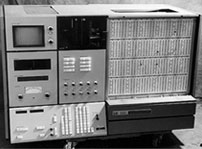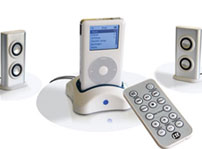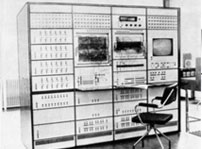Computer Classifications According to Technology
Digital Computers
Hydride Computers
Analog Computers
 An analog computer is a computer that uses electrical, mechanical or hydraulic phenomena. Analog computers are based on principles completely different from digital computers.Problem variables are represented by electrical voltages which can vary continuously within a certain range, usually -10 to +10 volts for a transistor-based machine.
An analog computer is a computer that uses electrical, mechanical or hydraulic phenomena. Analog computers are based on principles completely different from digital computers.Problem variables are represented by electrical voltages which can vary continuously within a certain range, usually -10 to +10 volts for a transistor-based machine.
 An analog computer is a computer that uses electrical, mechanical or hydraulic phenomena. Analog computers are based on principles completely different from digital computers.Problem variables are represented by electrical voltages which can vary continuously within a certain range, usually -10 to +10 volts for a transistor-based machine.
An analog computer is a computer that uses electrical, mechanical or hydraulic phenomena. Analog computers are based on principles completely different from digital computers.Problem variables are represented by electrical voltages which can vary continuously within a certain range, usually -10 to +10 volts for a transistor-based machine.These computers recognize data as a continuous measurement of a physical property ( voltage, pressure, speed and temperature).
Example: Automobile speedometer
Digital Computers
 A computer that stores data in terms of digits (numbers) and proceeds in discrete steps from one state to the next.
A computer that stores data in terms of digits (numbers) and proceeds in discrete steps from one state to the next.
 A computer that stores data in terms of digits (numbers) and proceeds in discrete steps from one state to the next.
A computer that stores data in terms of digits (numbers) and proceeds in discrete steps from one state to the next. The states of a digital computer typically involve binary digits which may take the form of the presence or absence of magnetic markers in a storage medium, on-off switches or relays.
In digital computers, even letters, words and whole texts are represented digitally.
Unlike analog computers, digital computers can only approximate a continuum by assigning large numbers of digits to a state description and by proceeding in arbitrarily small steps
Hybrid computers
 Hybrid computers are computers that comprise features of analog computers and digital computers.
Hybrid computers are computers that comprise features of analog computers and digital computers. The digital component normally serves as the controller and provides logical operations, while the analog component normally serves as a solver of differential equations.
 ශිල්ප 64
ශිල්ප 64